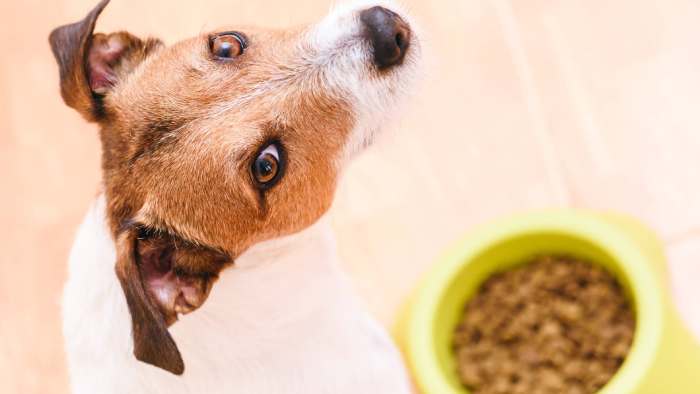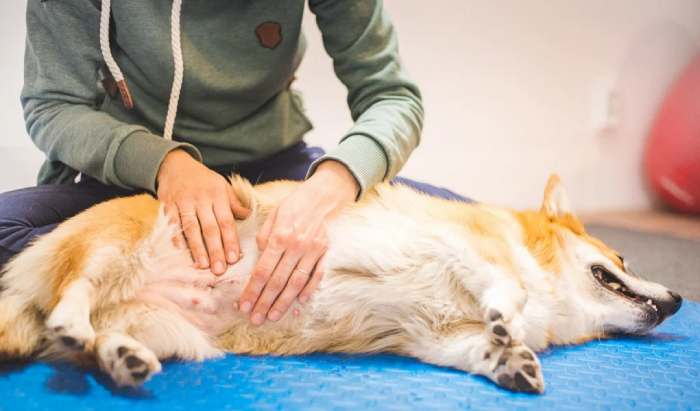Does your dog have gas? Don’t worry, you’re not alone! Many pet parents have had to deal with this issue. If you’ve been scratching your head trying to figure out what to do, don’t fret. This article will help you understand what’s causing your pup’s gas and what you can do about it.
We’ll cover everything from dietary changes and natural remedies to home remedies and veterinary advice. So, buckle up, and let’s get started on this smelly ride.
Causes of Gas: Understanding the Factors Behind Canine Flatulence
Causing gas in dogs can be attributed to a variety of factors. Diet is a major cause, as certain foods may be difficult to digest, leading to gas. Eating too quickly and swallowing air can also be factors.
Poor intestinal health can also play a role, as can a lack of exercise. To prevent flatulence, check with your vet for a diet plan that works for your pup. Regular physical activity can also help.
Sometimes, you may need to add probiotics or other supplements to improve your intestinal health. Paying close attention to your dog’s diet and lifestyle is essential for keeping their digestive system healthy and gas-free.
Dietary Changes: Modifying Your Dog’s Diet for Gas Relief

If your pup is dealing with gas, one of the best things you can do is to adjust their diet. A fiber-rich diet is key for your pup’s digestive health. High-fiber foods, like oats, can help your dog’s digestion and reduce gas.
Additionally, adding probiotics supplementation to your pup’s diet is beneficial. Probiotics can help to balance the gut bacteria and reduce digestive problems.
To ensure your pup gets the right balance of nutrients, speak to your veterinarian about their diet needs.
Adjusting your pup’s diet can help reduce their gas levels and improve their digestive health.
Natural Remedies: Herbal and Natural Approaches to Alleviate Gas

In addition to dietary changes, there are also natural remedies that you can give your pup to help reduce their gas. Herbal supplements like fennel, ginger, and chamomile can be given in tincture form, and probiotic foods such as yogurt can help balance their digestive system.
If your dog has a sensitive stomach, add a few drops of peppermint oil to their food. You can also try some probiotics containing live and active cultures to aid digestion.
If your pup is still having trouble with gas, try adding some apple cider vinegar to their water. This will help to reduce gas and aid in digestion.
Be sure to consult your veterinarian before giving your pup any natural remedies, as some herbal supplements and probiotics may not suit your pup’s needs.
Home Remedies: Simple At-Home Solutions for Canine Gas
You can also try some home remedies to help reduce your pup’s gas. Exercise selection and food combining can be beneficial for your dog’s digestion. Taking your pup on a daily walk and avoiding strenuous activity is important for their digestive health.
Choosing foods that are easy to digest and combining properly can also help prevent gas. For example, try avoiding feeding your pup proteins and starches simultaneously. Instead, opt for proteins and vegetables or starches and vegetables.
Limiting your pup’s intake of certain foods, such as garlic, onions, and dairy products, can help reduce gas. Lastly, adding probiotics to your pup’s diet can help maintain a healthy balance of gut bacteria and minimize gas.
Veterinary Treatment: Seeking Professional Guidance for Persistent Gas Issues
If home remedies aren’t enough to help your pup’s gas, you may want to consider veterinary treatment. Medical management and symptom relief are key when dealing with the issue.
| Treatment | Effectiveness |
|---|---|
| Probiotics | Improves digestion |
| Antacids | Reduces acidity |
| Change in Diet | Helps reduce bloating |
| Medications | Manage underlying conditions |
It’s important to note that not all treatments work for all dogs. Your vet may suggest a combination of treatments to get your pup feeling better. Additionally, monitoring your pet’s progress and adjusting treatments as needed is important.
While it may be difficult to watch your pup suffer, veterinary treatment can help bring your pup relief and comfort. Your pup can return to health and happiness with the right medical management and symptom relief.
Frequently Asked Questions:
Excessive gas is often caused by dietary changes or an imbalance of intestinal bacteria. To help, try making dietary changes and consult a vet for support. Compassionately, you can make your dog more comfortable.
Yes, gas in dogs can be caused by certain foods. Intestinal bacteria can be affected by diet changes, leading to increased gas production. Talk to your vet about dietary adjustments that might help relieve your pup’s gas issues.
Curious about how often to feed your pup? Consider adjusting their feeding schedule and dietary changes to help prevent gas. You’ll need to be patient yet persistent to find the best solution for your pup. You can soon get your pup back to feeling its best with a little care and compassion.
Yes, over-the-counter medications are available to help with your dog’s gas. Dietary changes like probiotics can help balance gut bacteria and reduce discomfort. Consider talking to your veterinarian to find the best solution for your pup.
Gas in dogs can be a sign of an unbalanced diet or poor digestion. Getting to the root cause of the issue is important to ensure your pup is healthy. Allusion can be made to the fact that gas can be a sign of a serious health problem, but consulting with your vet can provide peace of mind.
Conclusion:
Gas can be an uncomfortable and embarrassing problem for your pup. Fortunately, you can help reduce your dog’s gas with some dietary changes and natural remedies. If the problem persists, don’t hesitate to consult your veterinarian for further help.
It’s estimated that up to 90% of dogs suffer from gas at some point, so you’re not alone! Compassionate care and understanding can help your pup feel more comfortable and happy.

Hey there, I’m Janet Brooks, a dog-loving student from California. I’m all about helping pups in need, especially those without homes. Me and my awesome friends work together to give shelter and love to stray dogs. Oh, and I also write blogs about dogs to share helpful info.